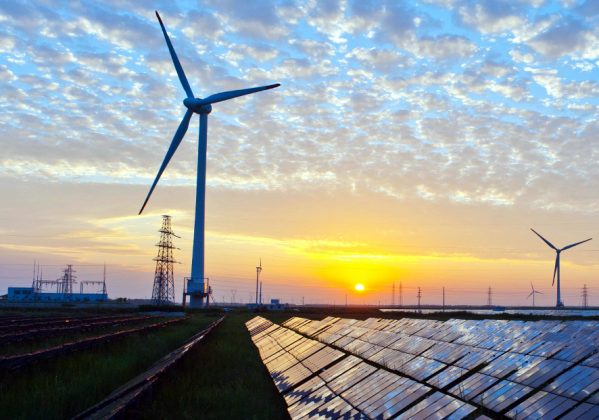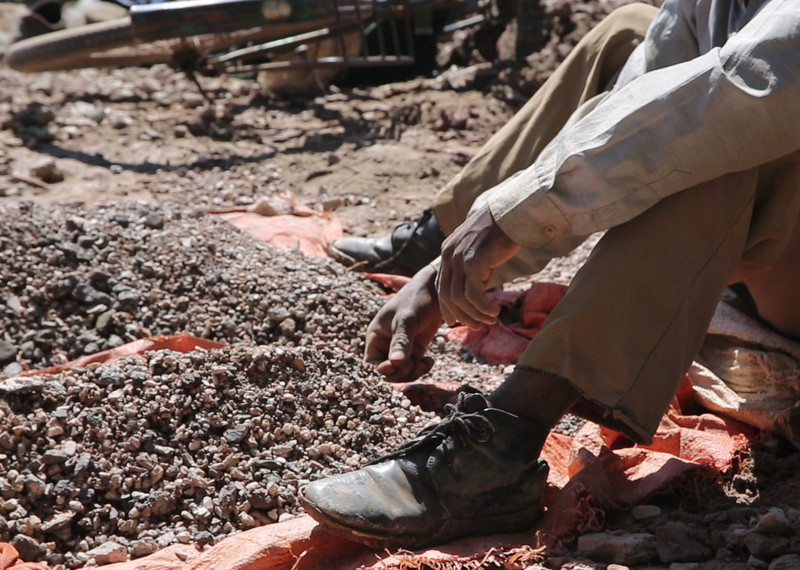

The credibility of Europe’s approach to a green economic transition abroad will depend on its ability to help create and sustain green industrialisation in African countries, making African countries not just targets of European policy, but key actors of a new and interconnected green economy.
Africa-Europe discussions on climate and energy are overshadowed by the inherent injustice of global climate action and the risks that an accelerated European transition can entail for African countries.
- Medinilla: ‘The prospects for African green hydrogen to power Europe’s industrial and transport transition, for example, are creating much excitement on both sides’ (Photo: Twitter)
This is not at all surprising. Africa has barely contributed to global CO2 emissions, is disproportionately affected by climate risk, and is now under pressure to forego fossil-fuel powered growth.
The historical climate injustice is not a debate the EU can win.
The EU’s response has been a gradual, if hesitant, expansion of its just-transition narrative beyond Europe. The idea of prioritising and concentrating investments in those countries that will be most affected by phasing-out fossil fuels was initially reserved for addressing Europe’s own coal-dependent regions and its direct neighbourhood.
The Just Energy Transition Partnership with South Africa at the Glasgow COP26 conference extended this to Africa’s biggest coal-dependent economy.
The AU-EU summit in February took this concept even further, announcing plans for green partnerships modelled on the South African one across the continent, including in countries with very different energy mixes like Egypt, Côte d’Ivoire and Senegal.
While these are important steps (at least on paper), there are still significant divergences. The challenge of any just transition in Africa is less a matter of phasing out dirty coal, and much more a matter of ensuring that African economies can benefit from an accelerated transition in order to industrialise.
This is also the tone of the AU’s draft climate change and resilient development strategy, which calls for seizing opportunities in low-emissions development and green industrialisation and to position the continent to benefit from a global green economy, as a key actor, not just a target of exogenously-determined policies.
For the EU, this also means backing its optimistic green narrative with more than just a scattering of green energy projects across the continent. It means adopting a much more forward-looking and long-term approach to just transition, one that is firmly rooted in the development and industrialisation ambitions of African countries and societies.
Brussels vs Addis Ababa
On natural gas especially, African leaders and Europeans do not see eye to eye. Simply put, the words “transition fuel” have a different meaning in Brussels and Addis Ababa.
The EU sees it as a last resort, a way to avoid dirtier coal or ageing nuclear infrastructure. African countries, especially those sitting on significant recently-discovered resources like Mozambique and Senegal, want to leverage the continent’s natural gas reserves and see natural gas as a way to accelerate their economic development and industrialisation.
“On energy we have diverging views […] We cannot ask the continent to renounce fossil fuels” Senegal’s president Macky Sall said bluntly in February.
Meanwhile, the war in Ukraine has sparked a stronger EU effort to wean itself off Russian gas and diversify European supply.
EU member states are looking towards existing African suppliers like Algeria, Egypt, and Nigeria. Newer entrants like Tanzania are also expressing interest in supplying LNG to Europe.
Yet infrastructure constraints mean that African gas may not be a quick and easy fix for Europe’s problems. The EU is also unlikely to move back into financing long-term fossil-fuel development abroad.
The real challenge is supporting viable alternatives in the short term.
The focus should be on showcasing opportunities in green industrialisation which leverages Africa’s clean energy potential for a higher value addition in manufacturing, agricultural processing and service industries while generating employment, revenues and new exports at scale.
This includes exploring the many opportunities for the production of green energy solutions for local markets or exports, or EV manufacturing. It also includes greening existing industries like building materials, construction, agro-food processing, as well as a host of circular economy applications.
When it comes to green energy, the focus should be less on competing with China for opportunities to install imported technology, but on establishing new sustainable industries and productive capacities and developing a renewables-based industrial ecosystem that can catalyse energy systems reform and multiply installed capacity.
Avoiding green ‘extractivism’
An African just transition also requires a different outlook on Africa’s role in the global green transition. The prospects for African green hydrogen to power Europe’s industrial and transport transition, for example, are creating much excitement on both sides, with new potential exporters like DRCongo and Namibia, joining north African countries like Morocco.
The EU should resist the urge to substitute one extractive relationship with another, and ensure that hydrogen investments are also used to power local low-carbon (heavy) industries, and include African countries and companies in the development of new applications from the start.
Similarly, European demand for critical raw materials like lithium and cobalt is set to multiply by 2050.
While African countries like the DRC and South Africa may be able to further boost income from royalties, processing currently largely takes place in China. This also risks confining African countries to the extraction stage of green technology value chains. Investments therefore need to address not just Europe’s own supply, but also Africa’s processing deficit and industrial development.
All this is of course easier said than done. The EU is under pressure to back its projected €150bn African investment package with credible plans, yet the challenges go beyond unlocking unseen levels of public and private finance.
Sustainable industrialisation requires innovation, both technical and in terms of the business models, production and consumption patterns. African and European actors will therefore need to develop a clear a common vision for an interconnected green economy, and rethink supply chains to maximise mutual benefits.
